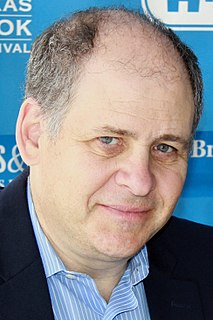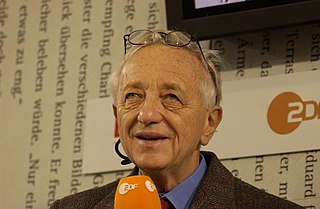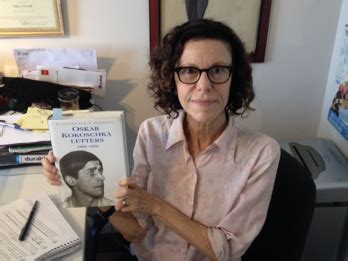A Quote by Jean-Paul Sartre
In Guinea I could read [Franz] Kafka. I re-discover in him my own discomfort.
Related Quotes
I guess I will say, going back to the Judaism questions, there are mental reflexes or patterns that I think of as Jewish in my own feelings about mysticism and theology.Franz Kafka is someone I very much revere. If I believed in holy texts I'd go to him as a touchstone. Not that I read Kafka all the time at this point. In a way, this is what I most want to talk about and it's the hardest to talk about.
Franz Kafka is dead. He died in a tree from which he wouldn't come down. "Come down!" they cried to him. "Come down! Come down!" Silence filled the night, and the night filled the silence, while they waited for Kafka to speak. "I can't," he finally said, with a note of wistfulness. "Why?" they cried. Stars spilled across the black sky. "Because then you'll stop asking for me."
When I wrote 'Your Republic Is Calling You,' it was Franz Kafka's writing that I had most in mind, and James Joyce's 'Ulysses.' Entirely out of the blue, Kafka's characters receive an order to go somewhere, and when they try to comply, they never quite manage it. Ki-yong in 'Your Republic Is Calling You' is precisely that sort of character.
Obviously I've been reading Kafka for a long long time, since I was really young, and even before I ever read him I knew who he was. I had this weird sense that he was some kind of family. Like Uncle Kafka. Now I really think of him that way, the way we think about an uncle who opened up some path for being in a family that otherwise wouldn't have existed. I think of him that way as a writer and a familial figure.
I was just interested in directing. So I just kept having a go at trying to write little scripts and get things together, and my wife just had a slip of the tongue and said, "Franz Kafka's It's A Wonderful Life" when she meant to say "Frank Capra's." There it is right there. That's a gag that we could make into something.
Kafka is one of my very favorite writers. Kafka's fictional world is already so complete that trying to follow in his steps is not just pointless, but quite risky, too. What I see myself doing, rather, is writing novels where, in my own way, I dismantle the fictional world of Kafka that itself dismantled the existing novelistic system.




































